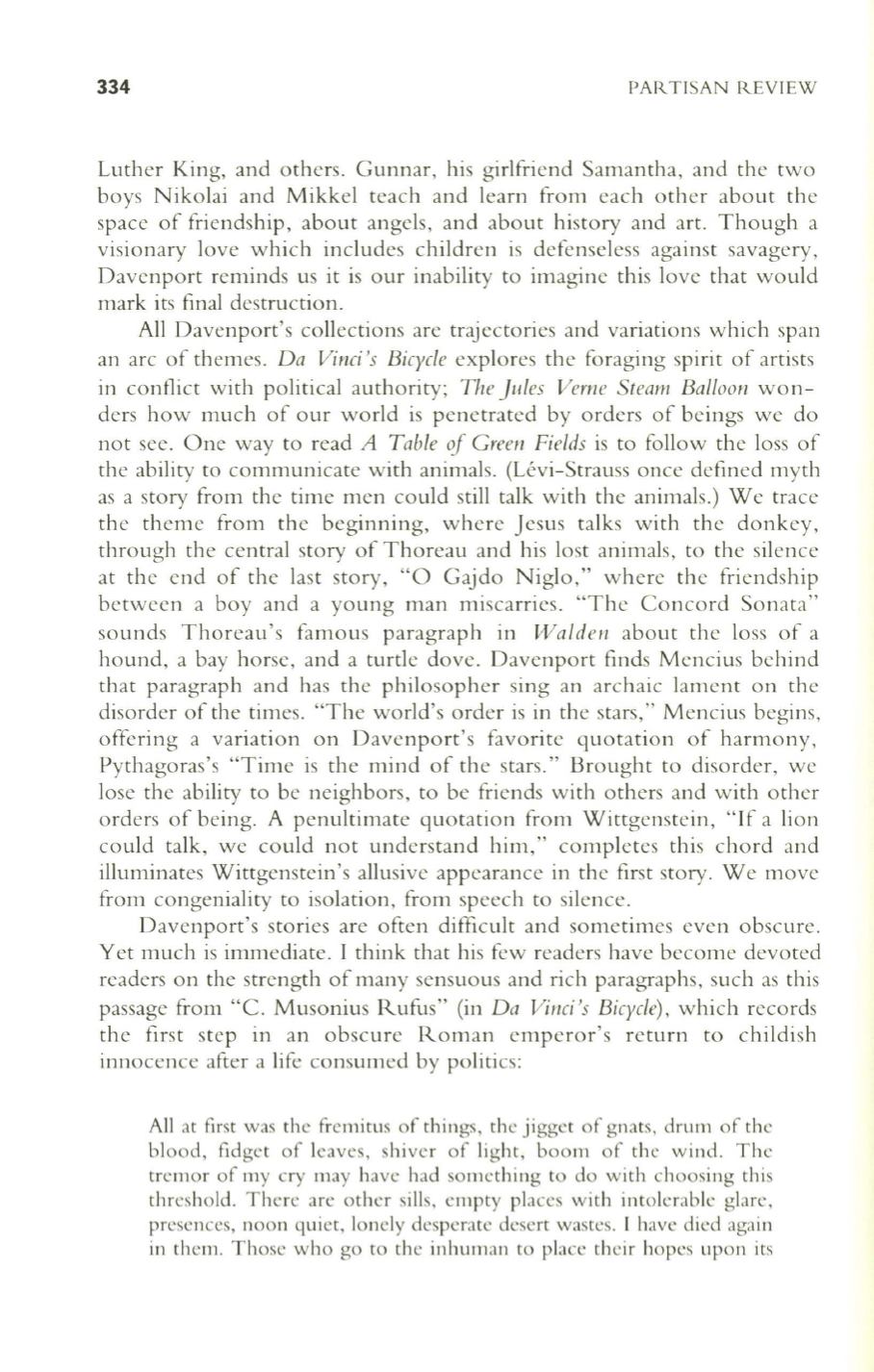
334
PARTISAN REVIEW
Luther King, and others. Gunnar, his girlfriend Samantha, and the two
boys Nikolai and Mikkel teach and learn from each other about the
space of friendship, about angels, and about history and art. Though a
visionary love which includes children is defenseless against savagery ,
Davenport reminds us it is our inability to imagine this love that would
mark its final destruction.
All Davenport's collections are trajectories and variations which span
an arc of themes.
Da Vinci 's Bicycle
explores the foraging spirit of artists
in conflict with political authority;
The Jllies Vern e Steam Balloon
won–
ders how much of our world is penetrated by orders of beings we do
not see. One way to read
A Table oj Green Fields
is to follow the loss of
the ability to communicate with animals. (Levi-Strauss once defined myth
as a story from the time men could still talk with the animals.) We trace
the theme from the beginning, where Jesus talks with the donkey,
through the central story of Thoreau and his lost animals, to the silence
at the end of the last story, "0 Gajdo Niglo," where the friendship
between a boy and a young man miscarries. "The Concord Sonata"
sounds Thoreau's famous paragraph in
Waldell
about the loss of a
hound, a bay horse , and a turtle dove. Davenport finds Mencius behind
that paragraph and has the philosopher sing an archaic lament on the
disorder of the times. "The world's order is in the stars," Mencius begins,
offering a variation on Davenport's favorite quotation of harmony,
Pythagoras's "Time is the mind of the stars." Brought to disorder, we
lose the ability to be neighbors, to be friends with others and with other
orders of being. A penultimate quotation from Wittgenstein, " If a lion
could talk, we could not understand him," completes this chord and
illuminates Wittgenstein's allusive appearance in the first story. We move
from congeniality to isolation, from speech to silence.
Davenport's stories are often difficult and sometimes even obscure.
Yet much is immediate. I think that his few readers have become devoted
readers on the strength of many sensuous and rich paragraphs, such as this
passage from
"c.
Musonius Rufus" (in
Da Vinci's Bicycle),
which records
the first step in an obscure Roman emperor's return to childish
innocence after a life consumed by politics:
All at first was the fremitus of things, the jigget of gnats, drum of the
blood, fidget of leaves, shiver of light, boom of the wind . The
tremor of my cry may have had something to do with choosing this
threshold. There are other sills, empty places with intolerable glare ,
presences, noon quiet, lonely desperate desert wastes. I have died again
in them. Those who go to the inhuman to place their hopes upon its


